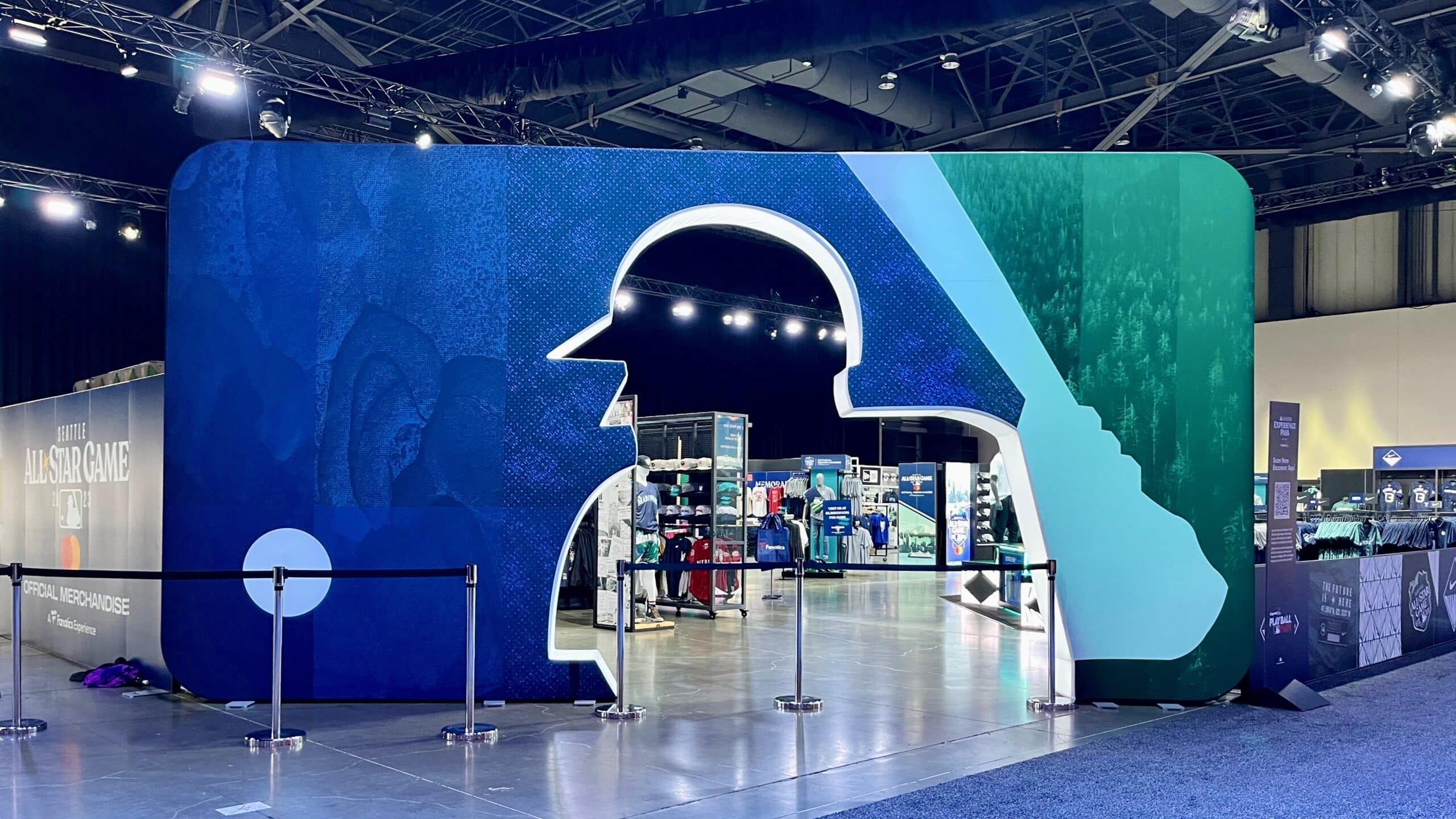[ad_1]
How Will the Metaverse Change Marketing?
Since Mark Zuckerberg’s speech, many brands have accelerated adopting AR/VR. Metaverse creates a new dimension that will change familiar patterns of behavior and consumption, just like the Internet once did.
Let’s take a look at what’s in store for the marketing industry.
Down the rabbit hole
Brands do not have any other choice than to join the Metaverse. In the Metaverse, a person is keen to see familiar products, as well as new types of goods created specifically for the new dimension and the new needs. Existing products can fit the Metaverse in two ways: by Digitalization or Phygitalization.
1. Digitalization.
Fashion industry is at the forefront of physical products digitalization, selling digital goods in virtual spaces. Digital fashion already has an exceptional value due to its uniqueness and limited availability.
Recently Adidas partnered with Bored Ape Yacht Club, Punks Comics and G Money to develop the “Into the Metaverse”, a collection of NFT tokens (which will come as both digital and physical products). Their NFT provides access to an exclusive community, virtual gaming devices, and the brand’s physical products, which won’t be available to NFT holders in the Metaverse until 2022. They sold $22 million worth of tokens in a few hours.
The British Fashion Council launched the first-ever Fashion Award for Metaverse Design on the Roblox platform. Anyone could take part in an online awards show which recorded two million visits. They could “travel” to the Royal Albert Hall and “walk” the red carpet, trying on new clothes and accessories. Or even buy from a range of Gucci digital products created exclusively for the event, and pay as much or even more compared to the real world.
The reason for brands to digitize their products for the Metaverse is to follow their users, finding a new channel of customer communication and a way to stay relevant.
2. Phygitalization.
Phygital transformation means complementing your physical self with digital content and using it as a Metaverse personal digital reflection.
We define Phygital as merging the worlds of physical things and digital content, with our Devar phygital books as an example. Information transcends the boundaries of illustration and print text, expanding into AR content and truly immersing the reader in the book.
The content components are inseparable, and the book gains additional value for the user as a holistic product with a higher engagement level. 70% of our customers around the world return after their first purchase showing the loyalty this type of product generates.
In another example, 3DHappyAR Studio animate their products with the help of web AR, including our no-code platform MyWebAR. The company specializes in storage containers with unusual lids that come to life in AR. They even created an Advent calendar with their lids: every day the content changed, customers watched Santa preparing for Christmas, and the company generated so much interest that it ended up as Walmart supplier.
Both digitization and phygitalization will evolve, affecting all consumer goods industries. Digital products will create a new market. Existing consumer goods will find new ways to stay relevant to their users’ lifestyles.
A land of opportunities
According to The State of Influencer Marketing 2021, almost half of social media users are considering the recommendations of certain bloggers when purchasing products (49%). This is due to the fact that influencer content is highly personalized and responsive to the agenda. Becoming an influencer doesn’t require being a brand ambassador, having a degree or an industry experience – finding an audience is all it takes.
TikTok took a lead in disrupting the influence. Before TikTok, only a select few could become a celebrity; it both took talent and resources. Now anyone can post a video and wake up famous.
TikTok became a land of opportunity, just like the Metaverse is evolving now. Unlike stores and shelves in offline retail, space in the Metaverse is not limited. You can display the goods depending on the user’s interest, irrespective of their location.
Metaverse is creating tremendous opportunities for creativity, business and technology, allowing new players to enter the market and compete with larger companies.
New dimensions of marketing
First advertising agencies used to create and place ads on billboards. Then came digital agencies doing online marketing. Now they need to create new ways to drive performance in the Metaverse.
During the pandemic, most brands embraced either digital, or e-commerce, or both. Similarly, now it will become essential to embrace the Metaverse as well. As patterns of user behavior differ, so does the marketing in the new spaces.
HYPER-REALITY – take a look at this
The need to be where your customers are requires transformation – either through digitization, or phygitalization. And it creates a new niche for startups, helping to address the new challenges and bridge the skills’ and tools’ gaps required for success. What to do with 3D models, how to handle legal issues, how to interact with users, how to do analytics – all those questions can be answered with new solutions.
Even websites, the storefront of digital performance, will change. They will become a space: distributed, outside the familiar confines of a browser, with an entry point being content ‘glued’ to physical products.
Alternatively, imagine a website as a VR environment with full immersion into the brand and its atmosphere. A user can literally be inside a site.
Think about setting up a store based on the impression economy. It can be personalized based on the user’s preferences expressed on social media. The same store may look different to you and your friends when you shop at the same time. Or you can have dragons walking next to you in the store and unicorns walking next to your daughter.
Or a brand ambassador’s digital avatar meets you in a virtual store. Thanks to the social media content, they already know you, they greet you with personal remarks, play your favorite music, creating a VIP experience.
But most importantly, marketing in the Metaverse is a deep dive into emotions. Utility, functionality, practicality do not matter in the Metaverse. On the contrary, engaging all senses, a thrilling race to be memorable, desirable, sensual – whoever drives more emotions, wins.
Final thoughts
Right now, everyone is trying to replicate a real world in AR/VR. However, the Metaverse’s new dimension offers something completely different – new rules, formats, values. Of course, there will be some familiar favorites, but it won’t stop there. And it requires a new type of thinking and a different perception of space.
Metaverse will disrupt behavior patterns, and Phygital will radically change daily lives – their habits, consumption process, and the economy as a whole, opening new doors for digital businesses.
If you think that everything described here is far from being real, let’s pass a mic to the titans. Here’s a fragment of Steve Jobs’ interview about the Internet from 1995: “The Internet will allow small companies to enter the market and start competing with large corporations. A small company in Arizona can set up a web server as good or better than IBM or any other corporation. That company will be able to interact with the customer directly over the Internet: they won’t have to build stores or hire employees. Direct interaction through the Internet and sending goods by mail would cost much less than building hundreds of stores across the country. The Internet will radically change the way we think about how to find, sell and deliver goods and services.”
Similarly, all the new concepts in the Metaverse will change familiar patterns of behavior, and Phygital will radically and completely change the daily lives of people all over the world. It will change their habits, the consumption process, behavior patterns, and the economy as a whole, opening new doors for modern digital enterprises to the offline economy.
This is no longer evolution. This is revolution.
Feel free to email us if you have questions about collaboration or want to discuss current trends in new universes ([email protected])
[ad_2]
Source link










